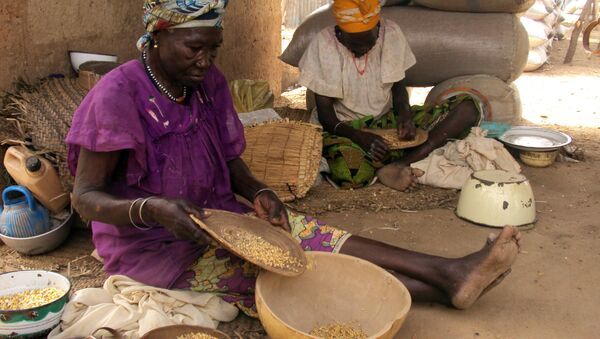The fall armyworm was first identified in West and Central Africa in early 2016. Now, it is destroying maize crops in Malawi, Namibia, Mozambique, South Africa, Zambia and Zimbabwe, Reuters and South African media report — only a year after the worst drought in decades laid waste to crops and left millions in need of assistance.
UN Food and Agriculture Organization has called an emergency meeting from February 14 to 16 in Harare to come up with a response to the threat. The South African government is already calling on chemical suppliers to apply for an emergency registration of pesticides to try to fight the infestation, local media report.
Armyworms are so named because they sometimes move in large masses from one area to another like an army. Arriving as moths, they lay eggs in plants, and they love corn. Armyworms have been known to destroy as much as 90% of crops they infest, according to Bloomberg.
— Jeremy Cordingley (@cropnuts_md) February 5, 2017
As such, they pose a major threat to food security and livelihoods in many already-precarious areas. Much of Africa relies on maize as a staple food. Reuters points out that the worms have been reported in every district of Malawi, a country where a third of the population, 6.5 million people, already depend on food aid.
Chief Scientist for Centre for Agriculture and Biosciences International (CABI) Matthew Cock told the BBC, "This invasive species is now a serious pest spreading quickly in tropical Africa and with the potential to spread to Asia. Urgent action will be needed to prevent devastating losses to crops and farmers' livelihoods."
As the armyworm is classified as a quarantine pest, a confirmed outbreak in a country can lead to import bans on agricultural products, shutting down trade.
— AgriFoodAID (@agrifoodaid) January 25, 2017




